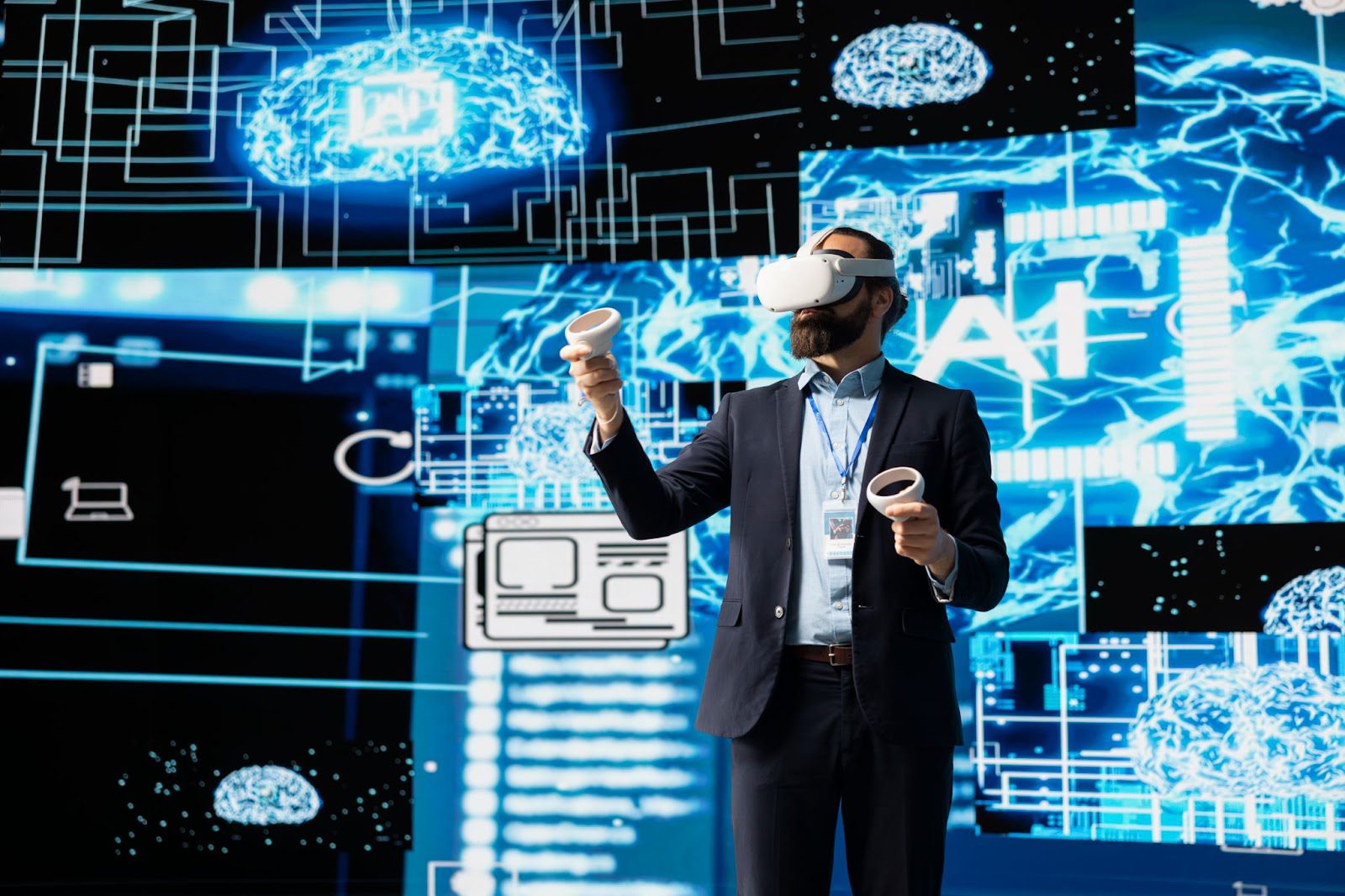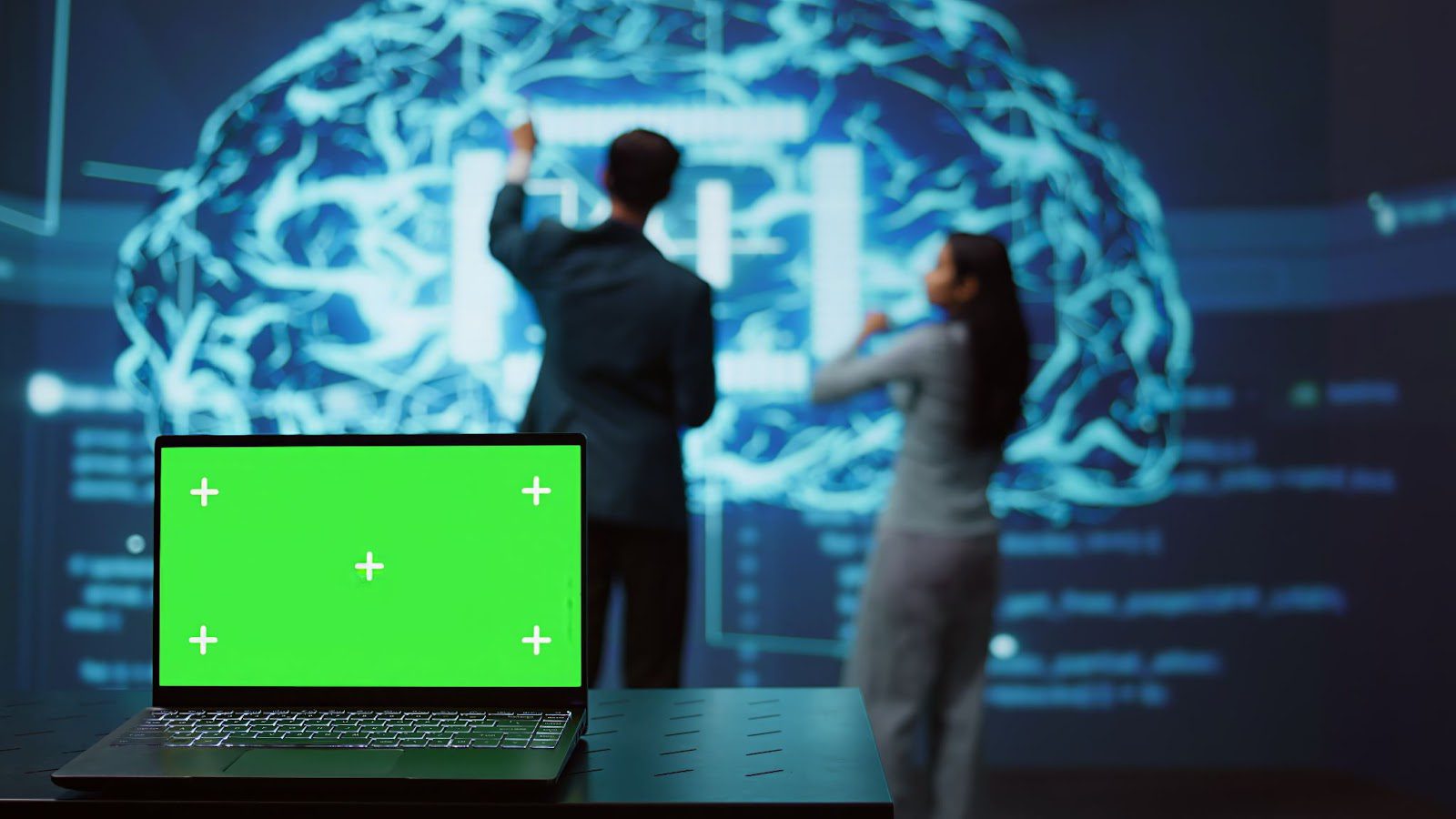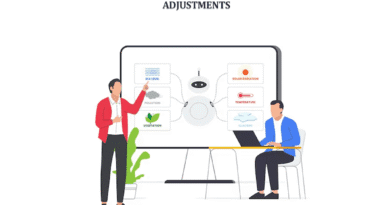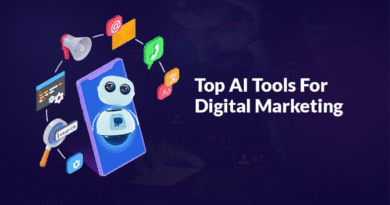What is Quantum AI? Understanding the Future of Computing in 2025
Your laptop struggles with specific calculations. Even supercomputers hit walls. Some problems are just too complex.
But what if there was a different way to compute? Not just faster. Different.
That’s what Quantum AI offers. It merges quantum computing and AI. The result? Problems that seemed impossible suddenly become solvable.
A drug that would take 10 years to develop might only take months. A financial model that crashes regular computers runs smoothly on specialized computers. Climate predictions become far more accurate.
This isn’t happening in some distant future. It’s happening now. Major companies are already using it. The quantum AI market is exploding. By 2034, it’ll be worth over $ 6,959.29 million.
Quantum AI changes the rules. It’s about using the strange properties of quantum physics to process information in entirely new ways.
In this guide, you’ll learn what Quantum AI is, how it works, and where it’s being used. And why it matters for our future.
Table of Contents
What is Quantum AI?
Quantum AI mixes two innovative technologies. One is quantum computing. The other is artificial intelligence.
Regular computers use bits. Bits are tiny switches. They are either off or on. That means they are 0 or 1.
Quantum computers use qubits. Qubits are special. They can be 0 and 1 simultaneously. This is because of quantum physics.
Now imagine giving AI this kind of power to your computers, it is like giving it a super brain. It can think in many directions at once.
Quantum AI can analyze vast amounts of data extremely quickly. It can solve complex problems quickly. Some issues would take regular computers hundreds of years to resolve.
It is growing at a very rapid rate every year. This indicates that many industries are committed to it.
Quantum AI can change everything. It can solve problems we once thought were impossible.

Quantum computers can simultaneously check many solutions. Regular computers check one at a time. This gives quantum computers a significant advantage for complex problems.
But they are not better at everything. They won’t replace your laptop. They are best suited for tasks such as extensive calculations, solving complex puzzles, or simulating molecules.
How Quantum AI Works
Quantum AI brings together three distinct elements that work in harmony to create something greater than the sum of its parts.
Quantum Computing Basics
Quantum computers use tiny particles to work. Qubits can exist in multiple states simultaneously. They use special effects to find the correct answers faster.
AI and Machine Learning Integration
AI requires a substantial amount of data and power. Quantum computers accelerate training and enable AI to operate more efficiently.
Quantum Algorithms
Scientists made new tools for quantum computers. These help AI learn more effectively, identify patterns, and search large databases efficiently.
Quantum AI operates in a unique manner. Quantum computers explore many solutions that regular computers can’t. AI learns from this and finds patterns. Together, they boost each other. Quantum makes AI faster, and AI helps quantum work smarter.
The result is a system that not only works faster, but also more efficiently. It works differently, opening approaches to problem-solving that weren’t possible before.
Key Applications of Quantum AI
Quantum AI isn’t just theoretical. It’s already making a significant impact in the real world across multiple industries.
Drug Discovery and Healthcare
Quantum AI accelerates the discovery of new drugs. It predicts how molecules behave and spots beneficial compounds. It can even target diseases that were previously difficult to treat.
Financial Modeling
Banks utilize Quantum AI to manage portfolios, identify risks, and detect fraud. It checks thousands of assets quickly and improves market predictions.
Natural Language Processing
Quantum boosts AI’s understanding of language. It makes chatbots, translation, and content suggestions smarter and more accurate.
Optimization Problems
Quantum AI solves challenging puzzles. It improves delivery routes, traffic flow, energy use, and factory systems.

What are the key Benefits of Quantum Computing and AI
Quantum AI doesn’t just work faster. It opens the door to solving problems we couldn’t solve before.
Exponential Speed Gains
Quantum AI solves problems in minutes that would take years on supercomputers. It’s not just faster, it’s a whole new level of computing.
Massive Dataset Handling
Social media, healthcare, and finance large datasets are effectively processed through quantum computers. It trains AI models more efficiently, predicts more accurately, and reduces the expenses.
Solving Complex Problems
Quantum AI is used to solve problems that computers are unable to. It aids in forecasting proteins, making deliveries, enhancing climate forecasts, and designing new materials.
Enhanced Machine Learning
Quantum hardware boosts AI models. It enhances pattern recognition, handles complex data without shortcuts, accelerates inference, and improves prediction accuracy through in-depth data analysis.
The combination creates a multiplier effect. Better AI improves quantum algorithms. Better quantum computing enables more sophisticated AI. This positive feedback loop accelerates progress in both fields simultaneously.
AI vs Quantum Computing: What’s the Difference?
People often mix up AI and quantum computing. But AI is innovative software, and quantum is fast hardware. They’re different.
Artificial Intelligence
AI is intelligent software. It learns from data and makes decisions. You use it in phones, laptops, and apps. Examples are ChatGPT, face recognition, and shopping suggestions.
Quantum Computing
Quantum computing is powerful hardware. It uses qubits to solve complex problems quickly. It runs AI and other programs. Examples are IBM Quantum and Google Sycamore.
Quantum AI
Quantum AI mixes AI and quantum computing. It solves problems faster and smarter. Experts in both fields build it.
Quantum computing gives superpowers to check millions of clues at once. Quantum AI is what happens when you combine both, creating an investigative capability that far exceeds what either could achieve alone.

What Are the Current Challenges in Quantum AI?
Quantum AI is significant and promising. But still, we have a long way to go before it is a fully developed concept.
- Building quantum computers is hard. They need thousands of stable qubits, but we only have a few.
- Quantum machines need extreme cold. Cooling them is expensive and requires a significant amount of energy.
- Tiny disturbances cause errors. Fixing them is tough and still not perfect.
- Quantum algorithms are new. Researchers must rethink everything and build from scratch.
- Only a few companies have quantum computers. Cloud helps, but it still needs expert skills.
These challenges are real, but they’re not stopping innovation. Let’s look at what the future holds.
What Does the Future Hold for Quantum AI Computing?
Quantum AI is moving ahead fast. Significant investments, discoveries, and real-world applications indicate that it’s about to change everything.
IBM, Amazon, and Microsoft will offer more quantum cloud services. Hardware will improve. New tools for industries will appear. Investment will grow.
Quantum AI is expected to outperform traditional systems in real-world tasks. Healthcare, finance, and logistics will use it. Mixed systems will be standard.
Machine learning will train faster. Cybersecurity will improve. Supply chains will run better. Significant breakthroughs will happen in science.
Conclusion
Quantum AI combines the speed of quantum computing with the learning power of AI to solve challenging problems. It’s already changing industries, such as drug discovery, market prediction, and logistics, which are becoming faster and wiser.
Though hardware and access challenges remain, progress is rapid. Investments and breakthroughs demonstrate that it’s becoming a reality and is valuable. The quantum AI market is set to grow from $341.8 million in 2024 to $2.01 billion by 2030. This is not just hype.
It’s a shift from theory to action. Whether you’re an investor, researcher, or learner, now is the time to dive in. Quantum AI is rapidly shaping the future.
FAQs
How do I start using Quantum AI?
Sign up on the Quantum AI platform, start trading, and begin with a small investment. Increase gradually as you get more comfortable using the system.
What is quantum computing in simple words?
Quantum computers act on qubits, which are simultaneously 0 and 1, that search across many possibilities simultaneously, a method that finds complex problems in a much more efficient way than a traditional computer.
Is quantum computing part of AI?
It is not the same case with quantum computing and AI, no. Physics is able to give quantum a chance to solve challenging problems, whereas data is able to make computers more intelligent and able to think like human beings.
What is the biggest problem with quantum computing?
The problem is mainly decoherence. Qubits are delicate and readily affected by noise, which may lead to errors and information loss during calculations.
How is quantum computing used in AI?
Quantum AI rapidly solves problems in drug discovery, finance, and logistics and environmental modeling by executing large datasets and complicated simulations in a shorter period compared to classical computing.




